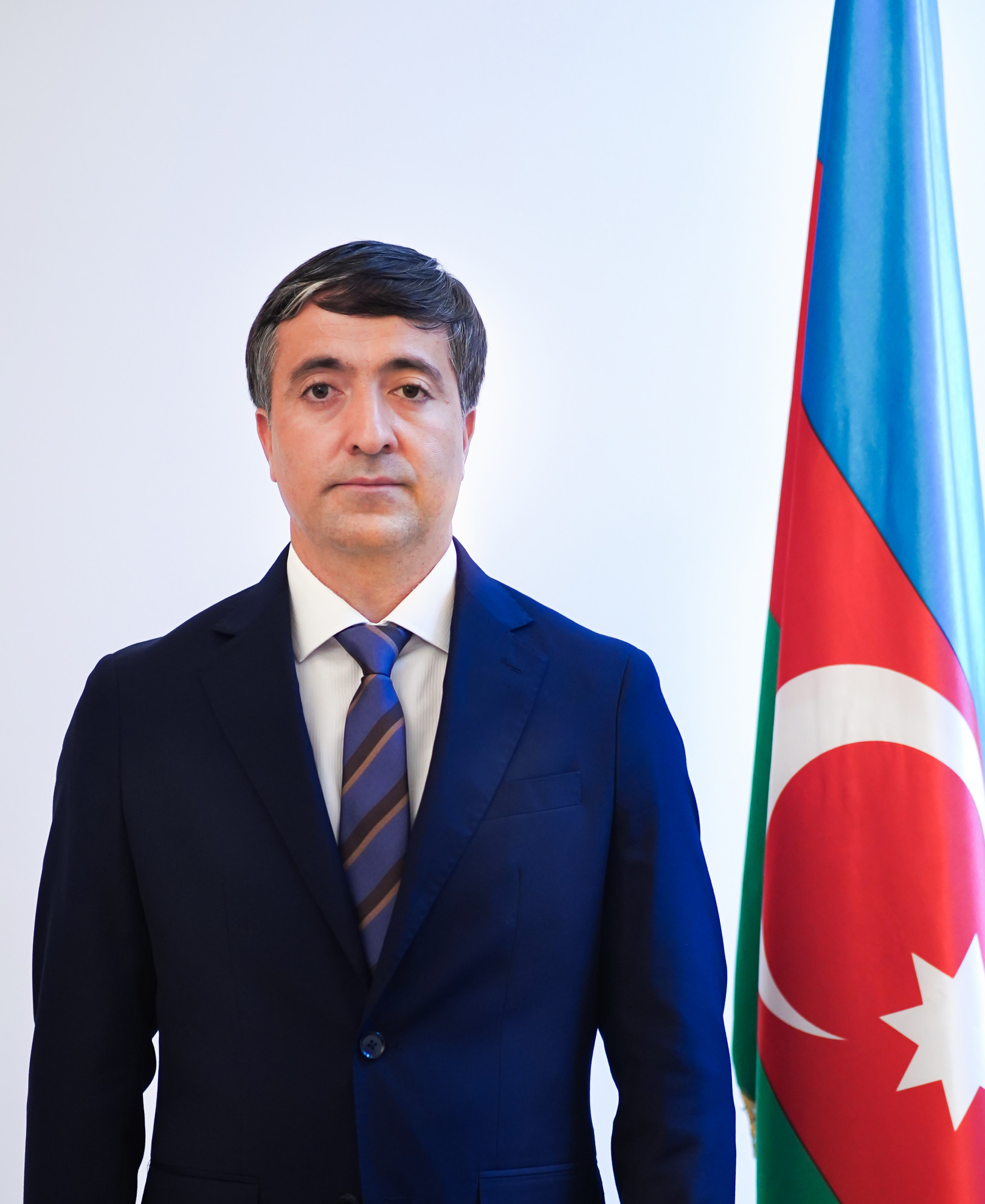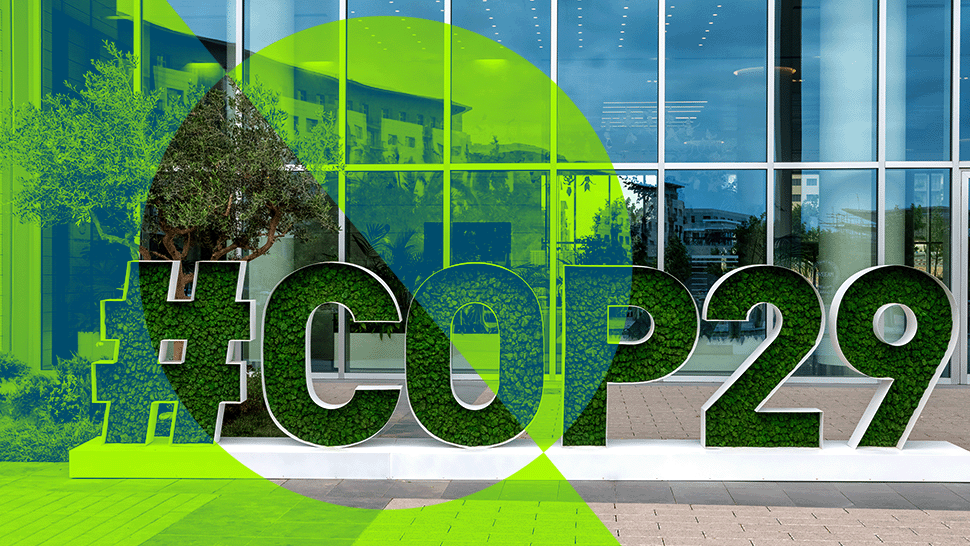The impacts of climate change have become more evident as greenhouse gas emissions (GHG) from human activities cause increased heat, drought, floods etc. Changes in the earth’s climate balance negatively affected many nations around the world. Therefore, climate challenges are a global problem which needs urgent attention from all nations in order to effectively address challenges and save our ecosystem.
The Republic of Azerbaijan is a resource rich country, and the country’s energy production is strongly tied to fossil fuels. However, Azerbaijan places a strong emphasis on sustainable development goals within green energy infrastructure development and the wider use of renewables throughout the economy. The economic potential of renewable energy sources is estimated at 27 GW, including 3,000 MW of wind energy, 23,000 MW of solar energy, 380 MW of bioenergy potential, 520 MW of mountain rivers.
The Azerbaijani government targets to increase the share of the installed capacity of renewables to 30 percent in the country’s overall energy balance by 2030. As one can see renewables offer the most promising low-carbon solution to meet the country’s climate targets. The country has committed to reduce its GHG emissions up to 35 percent by 2030 and 40 percent by 2050 from the 1990 base year set in its nationally determined contribution (NDC) under the Paris Agreement, which emphasizes the use of alternative and renewable energy sources to achieve this target.
This year Azerbaijan will host the United Nations Climate Change Conference (COP29) in Baku. COP29 shows Azerbaijan`s efforts to speed up the green growth performance and foster a more sustainable and eco-friendlier environment. To this end, Order of the President of the Republic of Azerbaijan on approval of “Azerbaijan 2030: National Priorities for Socio-Economic Development” shows that creating a clean environment and a country of “green growth” is the government’s key target, which will be an important step in efforts to maintain GHG emissions at a level that meets international standards.
The year 2024 was also declared “Green World Solidarity Year” in Azerbaijan. It is important to demonstrate the country’s commitment to environmental protection and climate action. Karabakh, East Zangezur, and the Nakhchivan Autonomous Republic have been declared “Green Energy Zones” (GEZ). The Japanese company TEPSCO and the Ministry of Energy signed an agreement that envisages the effective use of renewable energy potential such as wind, solar, hydro, geothermal, and bioenergy in the liberated territories. The purpose of the Concept Document is to provide the area with environmentally friendly green energy by using the existing high renewable energy potential in the liberated territories and to formulate proposals by studying the prospects for the application of environmentally friendly and energy-efficient green technologies.
Moreover, Azerbaijan established a successful energy partnership with the UAE’s global renewables company Masdar, ADNOC, Saudi-listed ACWA Power, BP, and China Gezhouba Group Overseas Investment to implement renewable energy projects in the country. Last year, the country inaugurated the first 230-megawatt Garadagh Solar PV Plant. This power plant is the largest solar power plant in the Caspian region and the CIS. The plant was built with the help of foreign investment worth $262 million. The plant will produce 500 million kilowatt-hours of electricity annually, saving 110 million cubic meters of natural gas. At the same time, carbon emissions into the atmosphere will be reduced by 200 thousand tons. As noted by President Ilham Aliyev during the International Forum COP29 and Green Vision for Azerbaijan, “This year, we will see the groundbreaking ceremony for four more solar and wind power plants with a total capacity of 1,300 megawatts. Only in Karabakh and Eastern Zangezur, the capacity of the hydropower stations has reached close to 170 megawatts in the last three years.”
All the above mentioned points illustrate Azerbaijan’s ambitious commitments to reduce GHG emissions and increase the share of renewables in its energy mix. But the key question is why is Azerbaijan is betting big on renewable energy sources, already having rich fossil fuel supplies? To answer this question, the country’s energy transition is driven by several factors, such as the growing economy, increasing energy demand, increasing energy exports, and the target to reduce GHG emissions.
Accelerating the use of renewable energy became a key element of Azerbaijan’s energy and foreign policy in recent years. In 2022, the EU and Azerbaijan signed a new “Memorandum of Understanding on a Strategic Partnership in the Field of Energy,” which supports further cooperation in the field of energy efficiency and renewable energy sources. The document opened the new page of energy cooperation between Europe and the South Caucasus.
The Green Energy Corridor
As a continuation of future green energy initiatives, Azerbaijan, Georgia, Hungary, and Romania signed an agreement to build an underwater electric cable under the Black Sea. This green energy project will connect the South Caucasus with South-Eastern Europe, involving the electricity systems of these countries and continental Europe. The project will serve as the “Green Energy Corridor,” which could become a new power source for the EU as Europe seeks to reduce its reliance on Russian energy.
It is also important to underline that the Black Sea submarine cable project opens new opportunities for Central Asian nations to tap vast green energy resources and later export electricity to Europe via Azerbaijan. To this end, Azerbaijan is one of the important countries of the Middle Corridor that supports strategic connectivity and energy projects and the transit of energy sources from Central Asia to global energy markets.
Fossil fuels and renewable energy resources in Central Asia and the South Caucasus are so abundant that they can easily meet the growing energy demand of Europe in the medium and long- term. These resources can also contribute to achieving the target rate- 42.5 percent (by 2030) of renewable energy in Europe.
Critical minerals for renewable energy
In addition, Central Asian countries, especially Kazakhstan and Uzbekistan, are rich in critical minerals, which are important raw materials in the production of renewable energy technologies. Central Asia is becoming a strategically vital region for many external powers. The West tries to strengthen its position there and reduce Chinese influence in the region. This further increases the competitiveness of the region, creates a favorable environment for investments, and makes South Caucasus a key segment in Asia-Europe energy and trade flows.
On May 1, 2024, Azerbaijan, Uzbekistan, and Kazakhstan signed a Memorandum of Cooperation to connect the energy systems of the three countries. According to Mikayil Jabbarov, Minister of the Economy of the Republic of Azerbaijan – “The implementation of this document will allow the three parties to interact in the production of “green” energy and the organization of its export through Azerbaijan to Europe, to ensure the integration of energy systems and the efficient use of renewable energy sources.
In the end, hosting COP29 for the first time in the region creates an enormous opportunity for the South Caucus and Central Asian nations to promote sustainable development and accelerate green transition. Last but not least, along with climate change, Azerbaijan supports peace agenda in the region, and as emphasized by Hikmet Hajiyev, foreign policy adviser to the president, who noted that “Azerbaijan continues and will exert additional efforts to make Cop yet another success story with regard to peace, and to make COP29 a COP of peace alongside the climate action issue.”
https://www.neglobal.eu/cop29-and-navigating-climate-challenges/








